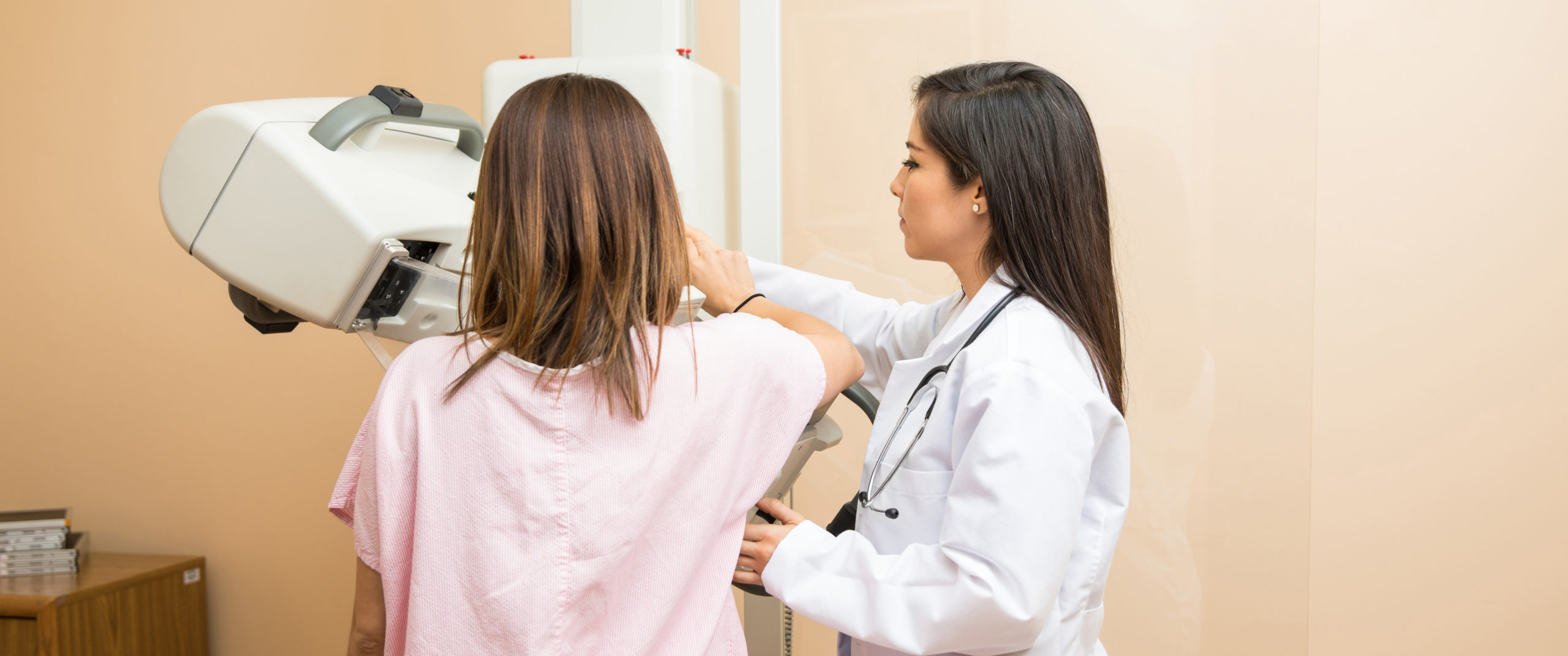

Preventative screenings for cancer
Preventative screenings reduce your risk of mortality by detecting health issues early on. Connecting with your Primary Care Physician to understand what screenings you need is your first step.
Breast Cancer Screening (Mammogram)
Beginning at age 40, people with breast tissue with a normal (average) chance of cancer should begin yearly mammograms. If you and your provider decide that you have a higher than normal chance of cancer, ask your provider about tests that may find cancer earlier.
Colorectal Cancer Screening (Colonoscopy)
Starting at age 45, have one of these tests that may find cancer cells or cells that may turn into cancer:
- Colonoscopy every 10 years: This is the best choice since it can prevent cancer by finding and removing small areas that may turn into cancer
- Flexible Sigmoidoscopy every 5 years and FOBT (Fecal Occult Blood Test)/FIT (Fecal Immunochemical Test) years after Sigmoidoscopy OR
One of the following tests may help prevent cancer growths
- FOBT or FIT every year
- Stool DNA test every 3 years
If your provider tells you that you have a higher-than-normal chance of cancer, ask your provider about tests that may find cancer earlier.
Lung Cancer Screening (Low Dose CT scan)
Low Dose CT scan every year for adults who:
- Are 50-80 years old (50-77 if you have Medicare) AND
- Currently smoke cigarettes OR quit within the past 15 years
Discuss with your provider the reasons and risks of lung cancer testing as well as opportunities for quitting commercial tobacco use for good.
Bone Density Screening
- For people with a prostate, beginning at age 50, talk about prostate cancer testing with your provider.
- For African Americans or for those who have a father or brother with prostate cancer, begin conversations at age 45.
Cervical Cancer Screening (Pap Test)
- For people with a cervix: age 21-30
- Pap every year: age 30-65
- Pap every 3 years OR pap with HPV co-testing every 5 years
Learn more about Vermont’s You First program which covers the cost of breast and cervical cancer screenings and diagnostic follow up.
Prostate Cancer
- For people with a prostate, beginning at age 50, talk about prostate cancer testing with your provider.
- For African Americans or for those who have a father or brother with prostate cancer, begin conversations at age 45.
Skin Cancer
- Have your provider look at your skin as part of your normal physical.
- Regularly check your skin for any changes, such as moles that change shape, color or size.
- If changes are noticed, don’t hesitate to reach out to your provider and ask to be seen.
HPV Vaccine
- Get the two-dose HPV vaccine for children of both sexes at ages 11-12 years old
- For those ages 13-26 who did not receive the vaccines when they were younger, vaccines can prevent cervical, anal, mouth and other cancers caused by the Human Papillomavirus. Talk with your child’s provider. Learn more »
Transportation
Don’t let lack of personal transportation keep you from important health screenings and appointments.
- Green Mountain Transit: https://ridegmt.com/ All GMT bus rides are fare free until June 30, 2023.
- If you have Medicaid, you can get help with transportation by contacting GMT’s Regional Programs, call 802-527-2181 or go to https://ridegmt.com/regional-programs/
- Grand Isle residents who are seniors (aged 60+) or have a disability, connect with CIDER for transportation https://www.cidervt.org/what-we-do/transportation
Resources
Local Resources:
- American Cancer Society- Vermont »
- Breast Health Screenings at Northwestern Medical Center:- Email Chelsea Mulheron, RN, Diagnostic Imaging Department
- Family planning or Gynecologic Care- Northwestern Obstetrics & Gynecology
- LGBTQ+ Affirming Primary Care Provider directory »
- Northwestern Medical Center Financial Assistance—[email protected]
- Pride Center’s Cancer Screening & Heart Health »
- University of Vermont Medical Center Cancer Center »
- Vermont Department of Health »
- Vermont Cancer Support Network »
- You First – Breast and Cervical Screening Resources and Coverage »
National Resources
